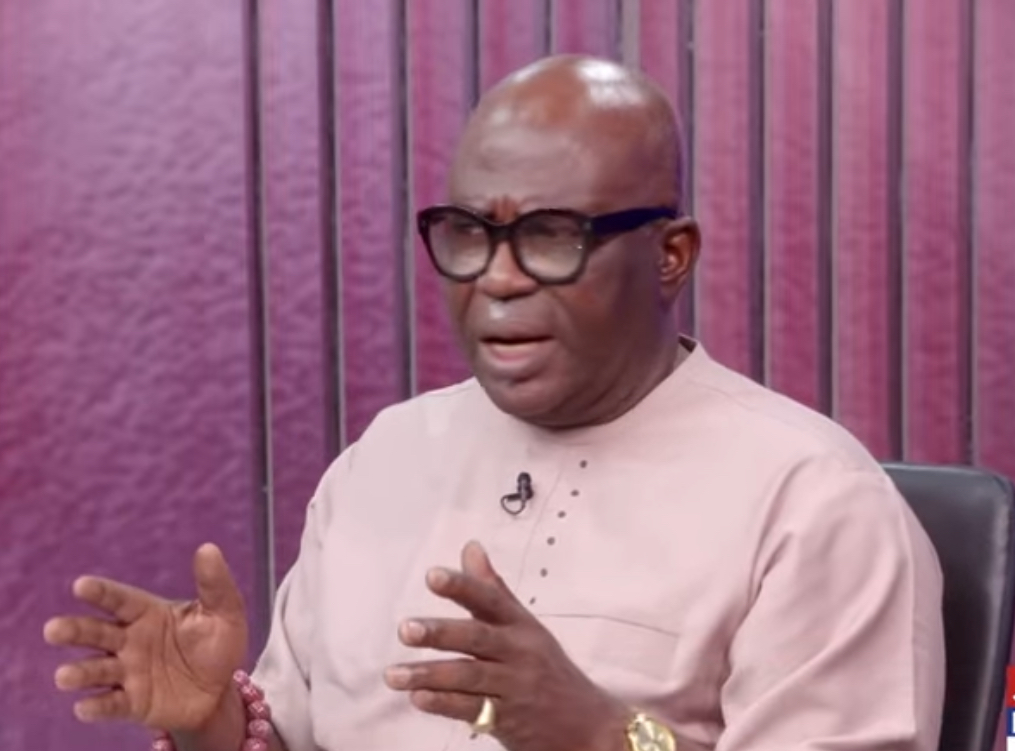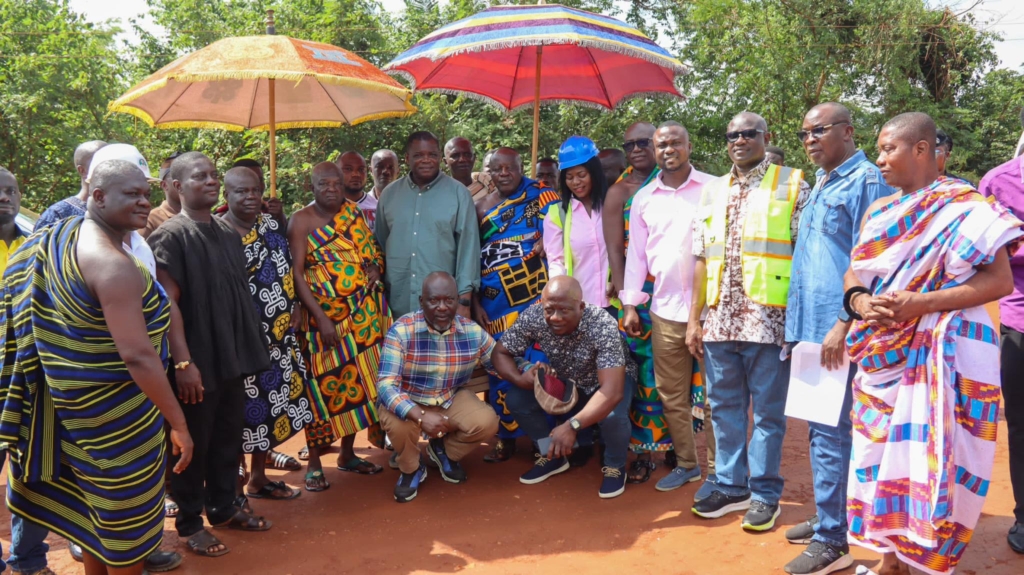ARTICLE AD
Democratic control and oversight of statutory intelligence agencies refer to a comprehensive set of mechanisms and processes designed to ensure that intelligence bodies operate within the framework of the law, uphold fundamental human rights, and align their activities with democratic values and the broader interests of the nation[1].In the context of African states, this concept assumes heightened significance due to the complex historical tapestry of the continent, coupled with trends of colonial legacies, periods of political upheaval, and the frequent centralisation of power in post-independence governance structures. The establishment of effective oversight is, therefore, not merely a technical exercise but a transformative and progressive endeavour aimed at fostering public trust, reinforcing accountability, and legitimising state institutions in the eyes of citizens. This mechanism delineates the distinct yet interconnected roles of the executive, legislature, judiciary, and civil society in exercising democratic control and oversight functions over intelligence bodies with a detailed blueprint to embed good governance into the national security architecture of nation-states.
Statutory Intelligence Agencies
Statutory intelligence agencies are government organisations established by a constitution or laws of a state, responsible for collecting, analysing, and acting upon information related to national security, foreign policy, and threats to a state's interests. These agencies operate within the legal framework of their respective countries and may focus on different types of intelligence, such as military, political, economic, terrorism, or cybersecurity-related intelligence. Statutory intelligence agencies in modern democracies worldwide are classified into: Internal Intelligence Agency; External Intelligence Agency; and Signals Intelligence Agency. An internal intelligence agency is responsible for domestic security, counterintelligence, and law enforcement-related intelligence within a country. Its primary role is to ensure national stability by preventing internal threats, such as terrorism, espionage, organised crime, cyber threats, and political subversion.[2] Examples of some typical internal agencies are: Federal Bureau of Investigation (FBI) of the USA, Secret Service (MI5) of the UK, the National Intelligence Bureau (NIB) of Ghana, the Department of State Services (DSS) of Nigeria and the National Security Agency (NSA) of Egypt. The external intelligence agency is responsible for gathering and analysing intelligence on foreign entities, including governments, organisations, and individuals, to protect national interests and inform policymakers. These agencies primarily focus on espionage, foreign threats, strategic intelligence, and covert operations outside their home country.[3] Examples of external intelligence agencies include the Central Intelligence Agency (CIA) of the USA, the Foreign Intelligence Service (SVR) of Russia, the National Intelligence Agency (NIA) of Nigeria, the South African Secret Service (SASS), the Direction Générale des Études et de la Documentation (DGED) of Morocco, and the Institute for Intelligence and Special Operations (Mossad) of Israel. Signals intelligence agencies are responsible for intercepting, collecting, analysing, and decrypting electronic communications to support national security, military operations, and intelligence assessments. These agencies specialise in gathering intelligence through radio signals, phone communications, internet traffic, satellite transmissions, and encrypted data.[4]Well-known examples of signals intelligence agencies include the National Security Agency (NSA) of the USA, the Government Communications Headquarters (GCHQ) of the UK, the National Signals Bureau (NSB) of Ghana, the Australian Signals Directorate of Australia, the Communications Security Establishment (CSE) of Canada, and the National Intelligence Service (NIS) of Kenya.
Statutory intelligence agencies in modern democracies are placed under a specific ministry to ensure effective executive democratic oversight, in addition to other organs of state and civil society actors. In the UK, the internal intelligence agency is placed under the Home Office, whereas the external and signals intelligence agencies operate under the Foreign, Commonwealth & Development Office. In Nigeria, all the three intelligence agencies are placed under the Office of the National Security Adviser, who exercises executive control over these agencies and is responsible for answering questions in the legislature on all matters concerning the intelligence agencies.[5]
Executive Control and Oversight of Intelligence
The executive branch, typically led by the President, Prime Minister, or a designated minister such as the Minister of Security or Territorial Affairs/Internal Security, bears primary responsibility for the direction, management, and supervision of intelligence agencies. This role is exercised through the issuance of policy directives, the appointment of intelligence agency leadership, and the provision of overarching guidance that ensures intelligence activities serve national priorities.
The democratic control and oversight mechanisms by the executive are operationalised through several key mechanisms. Policy guidance and direction serve as the foundation, articulating the scope and priorities of intelligence work. The appointment of agency heads constitutes a critical lever of democratic control, with Presidents or Prime Ministers selecting Executive Heads of statutory intelligence agencies, often subject to constitutional or statutory stipulations. In Ghana, for example, the President appoints the Directors General of Intelligence Agencies in consultation with the governing body and the Public Service Commission, as stipulated in the Security and Intelligence Agencies Act of Ghana, Section 15 (Act 1030).[6]
In addition, the executive formulates budgets and examines expenditure through internal audit mechanisms of intelligence institutions. The executive is also responsible for authorising the request for special powers,[7] as well as approving sensitive operations of intelligence agencies. Direct oversight of intelligence bodies is further reinforced through mandatory reporting requirements, whereby heads of intelligence institutions submit regular updates and reports to the executive, ensuring operations remain lawful and aligned with democratic practices and norms. This practice, if institutionalised, could provide a structured channel for democratic control and oversight.
Globally, the influence of the executive over intelligence is both a practical necessity and a potential vulnerability, given the historical tendency in some states for power to be disproportionately concentrated, often sidelining other democratic institutions. The executive, as part of its control and oversight responsibilities, is positioned to oversee intelligence and provide policy directions to intelligence agencies for tackling emerging threats. For instance, in Kenya, where the threat of terrorism from groups such as Al-Shabaab looms large, the executive, through the Office of the President, has shaped the operational focus of the National Intelligence Service, directing resources towards counter-terrorism while ostensibly adhering to constitutional mandates.[8] The executive oversees intelligence and provides policy direction to intelligence agencies to fulfil their mandates as provided by law. In South Africa, the executive oversees the State Security Agency, balancing its mandate between external threats and internal stability, a reflection of the post-apartheid security imperatives.[9]
However, the oversight responsibilities of the executive over intelligence agencies are not without significant challenges. Key challenges include the complexity of intelligence operations and the inability of the executive to fully comprehend the intricacies of intelligence work. Providing informed oversight presents difficulties, including tensions between the need for transparency and the imperative to safeguard sensitive information. Striking a balance is essential to maintaining public trust while protecting national security. Additionally, political pressures can lead to biased interpretations of data, thereby undermining the objectivity of intelligence operations.
There are, however, tendencies in some African countries where the executive uses intelligence to monitor and suppress political opposition, undermine civil liberties, and entrench the ruling power of elite groups.[10] This underscores the peril of unchecked executive authority, where intelligence agencies become instruments of coercion rather than safeguards for national security and stability. To counter such risks, African states must rely on the legislature and civil society actors as effective mechanisms for oversight within the broader framework of democratic checks and balances. This approach can help monitor and curb executive excesses while protecting citizens' civil liberties.
Furthermore, in some African countries, heads of intelligence agencies are appointed by the executive based on political affiliations rather than expertise and merit-based criteria. There are instances where individuals with no intelligence background are imposed on agencies. Ensuring that the appointment of intelligence agency heads adheres to transparent and merit-based criteria, including a competitive rigorous selection process, is essential for enhancing the efficiency and effectiveness of intelligence agencies.
In certain countries, intelligence agencies operate independently without being placed under any ministry or governing body for effective executive oversight. This situation fosters autocracy and internal mismanagement, where agency heads unilaterally make decisions on postings, promotions, and recruitments without consultation or reference to a higher authority. Establishing a dedicated ministry or office responsible for intelligence oversight, along with other executive responsibilities, may be an option to ensure effective democratic control and oversight. Intelligence agencies should also be placed under a governing body, such as in Ghana, where the National Security Council serves as the supervising authority for statutory intelligence agencies, as stipulated in the Security and Intelligence Agencies Act of Ghana, section 13 (Act 1030).[11] By institutionalising these mechanisms, the executive can retain its policy role while mitigating the potential for abuse and fostering a culture of accountability that aligns with democratic ideals.
Legislative Oversight of Intelligence
The legislature, whether a parliament, national assembly, or congress, stands as a linchpin of democratic control and oversight, tasked with holding intelligence institutions accountable through its committees, public hearings, and investigative authority, the legislature plays a crucial role in democratic oversight. In African states, where democratic institutions are at varying stages of maturity, legislative oversight provides an essential counterbalance to executive power, promoting transparency and ensuring that intelligence activities conform to constitutional and statutory principles, as well as serving the public interest.
Legislative oversight is undertaken through various mechanisms, each designed to pierce the veil of secrecy that often surrounds intelligence work. Budgetary approval and control rank among the most potent tools, as legislatures wield the power to approve or reject intelligence agency funding, thereby influencing the scale and direction of their activities. This process demands a level of technical proficiency among legislators to analyse complex budgets, a capacity that remains underdeveloped in many African democracies, where legislative resources are stretched. Legislatures are required to establish a clear legal framework for statutory intelligence institutions, including the enactment of laws and regulations governing intelligence agencies. They also have the responsibility to evaluate the propriety, legality, effectiveness, and deficiencies of intelligence agencies through effective oversight mechanisms.
As part of its oversight role, the legislature also ensures that intelligence agencies respect and protect civil liberties. Additionally, legislatures can impose reporting obligations, requiring heads of intelligence agencies to appear before oversight committees to justify their actions. In Nigeria, the National Assembly has occasionally summoned intelligence heads to address glaring intelligence failures, such as the 2014 abduction of the Chibok schoolgirls by Boko Haram. However, these interventions have often been ad hoc rather than part of a systematic framework.[12]
The investigative powers of legislatures also help to probe allegations of misconduct within intelligence agencies. Legislatures have the capacity to scrutinise intelligence operations, though the effectiveness of this role varies depending on the political context. In South Africa, for instance, the Joint Standing Committee on Intelligence exercises rigorous oversight over the State Security Agency, reviewing its budgetary allocations, operational conduct, and adherence to human rights standards. This serves as a model of legislative engagement that other African nations might seek to replicate.[13] Similarly, in Kenya, the Defence and Foreign Relations Committee of the National Assembly holds the potential to oversee the National Intelligence Service more robustly, particularly following its expanded mandate under the 2012 National Intelligence Service Act.[14] The Parliament of Ghana has recently established the Select Committee on Security and Intelligence under the revised Standing Orders of Parliament.[15] Legislative oversight committees play a crucial role in ensuring that intelligence agencies operate within legal, ethical, and democratic frameworks. They provide checks and balances to prevent abuses of power, ensure national security policies align with public interests, and hold intelligence agencies accountable.[16]
Legislative oversight of intelligence agencies is essential for maintaining democratic accountability, protecting civil liberties, and preventing abuses of power. However, this oversight faces numerous challenges due to the secretive nature of intelligence work, legal complexities, political interference, and limited resources. The inherently secretive nature of intelligence operations often restricts the information available to the legislature, making scrutiny superficial at best. Partisan politics, a pervasive feature in some African states, has sometimes distorted oversight efforts, with some governments shielding intelligence agencies from criticism while opposition members exploit inquiries for political gain.[17]
Many African legislatures, in particular, grapple with resource constraints, lacking the trained staff, financial support, or technical expertise needed to monitor sophisticated intelligence activities effectively. To address these challenges, African countries should establish specialised intelligence oversight committees with clearly defined mandates, invest in capacity-building programmes to equip legislators with the requisite knowledge, and enact legislation mandating regular or annual reports from intelligence agencies. The legislature can consult experts, including former intelligence officers and academic scholars, to gain insights into best practices for effective oversight. Additionally, institutional visits to intelligence agencies would provide legislators with firsthand information about their operations, challenges, and resource needs, enabling them to influence the executive to allocate necessary resources. Such measures would strengthen the role of the legislature as a guardian of democratic accountability and ensure that intelligence agencies function within a broader framework of good governance in African states.
Judiciary Control and Oversight of Intelligence
The judiciary plays a pivotal role in the oversight architecture of governance, ensuring that intelligence institutions operate within the bounds of legality and constitutionality while safeguarding human rights and the rule of law. In African states, where judicial independence is highly regarded as a tenet of good governance, the courts’ oversight function serves both as a shield against abuses of power and a barometer of democratic resilience. Judicial oversight typically involves reviewing the legality of intelligence operations, adjudicating disputes arising from intelligence actions, authorising special powers for intelligence bodies, issuing warrants or approvals before conducting surveillance or other intrusive activities, and adjudicating criminal, civil, and constitutional law cases concerning intelligence bodies.[18]
In South Africa, the Constitutional Court has set a significant precedent by invalidating provisions of intelligence legislation that infringed upon privacy rights, offering a compelling example of judicial assertiveness that other African nations might seek to emulate.[19] Similarly, the Kenyan judiciary has consistently intervened in cases involving the National Intelligence Service to prevent and redress unlawful detentions during counterterrorism operations. Through landmark rulings, the courts have reinforced the principle that national security measures must comply with constitutional and human rights standards, ensuring that the fight against terrorism does not come at the expense of civil liberties.[20]
For judicial oversight to be effective, nation-states must establish clear legal frameworks that define the scope of intelligence activities and specify the conditions under which agencies may undertake intrusive actions. This includes mandating prior judicial approval for surveillance or searches, a practice implemented in Ghana under the Security and Intelligence Act (sections 34 to 36), but which may be conspicuously absent in some African states, such as Burkina Faso and Mali, which are under military regimes and facing major terrorist threats. Courts must also be empowered to investigate complaints from citizens affected by intelligence operations, providing accessible avenues for redress when rights are violated.
However, significant challenges persist. In countries such as Ethiopia, where judicial independence in the past has been compromised by political interference, the courts’ ability to oversee intelligence agencies remains severely constrained.[21] The complexity and urgency of intelligence operations further complicate judicial scrutiny, particularly when national security reasons are invoked to justify bypassing legal oversight, a tactic observed in states under prolonged states of emergency, such as Egypt during its post-2011 transition. In Ghana, special powers for statutory intelligence agencies are requested by the Executive but must be approved by a judge of the superior courts before such powers are granted and implemented.[22]
To strengthen judicial control and oversight, African countries should uphold judicial independence in practice through constitutional or legislative safeguards, ensuring that courts are insulated from political pressure. Training programmes for judges in national security law would enhance their capacity to adjudicate complex intelligence-related cases, while the establishment of specialised courts or chambers could streamline oversight efforts. Public access to judicial remedies must also be prioritised, enabling citizens to challenge the actions of intelligence agencies without fear of retribution. By embedding the judiciary within the oversight framework, states can adhere to the rule of law, ensuring that intelligence agencies operate as protectors of democracy.
Civil Society Organisations and Oversight of Intelligence
Civil Society Organisations (CSOs), encompassing non-governmental organisations, the media, faith-based organisations, trade unions, professional associations, advocacy groups, think tanks, and ordinary citizens, constitute an informal yet indispensable pillar of democratic oversight. They amplify transparency and accountability beyond the formal structures of the state. In African states, where state institutions may lack the capacity or political will to fully scrutinise intelligence agencies, CSOs serve as vital watchdogs, exposing abuses and advocating for reform.
Civil society oversight of intelligence entails investigating the policies of intelligence bodies, exposing improper, illegal, ineffective, or inefficient conduct within intelligence services, keeping the public informed regarding intelligence service policies and activities, advocating for independent review bodies to investigate complaints and allegations of wrongdoing, promoting robust whistleblower protection laws to ensure that individuals who report misconduct within intelligence agencies are safeguarded, and educating the public about the role and activities of intelligence agencies and the importance of oversight.
Across the world, civil society actors have demonstrated their potential to influence intelligence oversight, albeit within the constraints of political and legal environments. In South Africa, groups such as the Right2Know Campaign have campaigned against excessive secrecy in the State Security Agency,[23] while in Nigeria, media outlets have previously uncovered intelligence failures during the Boko Haram insurgency, pressuring the government to respond. [24]Similarly, in Kenya, civil society groups have challenged the role of intelligence agencies in state affairs, advocating for greater accountability and transparency.[25] By empowering civil society oversight, African nations can establish robust mechanisms to ensure intelligence agencies operate within the confines of legality and democratic governance, ultimately reinforcing the protection of civil liberties and human rights.
Conclusion
Embedding intelligence within a robust democratic framework ensures that intelligence institutions serve the public good and uphold democratic principles. Through sustained political will, strategic reforms, and collaboration, African states can establish intelligence agencies that operate under effective democratic control and oversight, thereby enhancing both national security and good governance. Effective intelligence oversight is crucial for ensuring that intelligence agencies function within the confines of the law, protecting citizens' rights and preventing potential abuses of power.
Robust oversight mechanisms also help prevent the politicisation of intelligence institutions, ensuring that these agencies serve the state rather than a specific political class or government. As African states continue to develop, strengthening the democratic control and oversight of intelligence will lead to more efficient and effective intelligence operations, ensuring that agencies are used to address legitimate security threats rather than to undermine democratic values. By addressing existing challenges and committing to necessary reforms, African countries can build intelligence structures that are both responsive to the needs of the state and accountable to the people they serve.
Endnotes
[1]. Born, Hans. (2003). "Democratic Accountability of Intelligence Services." Geneva Centre for the Democratic Control of Armed Forces (DCAF).
[2]. Johnson, Loch K. (2007). Handbook of Intelligence Studies. Routledge.
[3]. DCAF Report: "Intelligence Governance and Oversight" (2017).
[4]. Aid, Matthew M. (2009). The Secret Sentry: The Untold History of the National Security Agency. Bloomsbury Press.
[5]. National Security Agencies Act, Nigeria, Cap. 278, LFN 1990.
[6]. Security and Intelligence Agencies Act of Ghana, 2020 (Act 1030 of the Parliament of Ghana).
[7]. Intelligence agencies are granted special powers to safeguard national security, prevent threats, and conduct intelligence operations effectively. These powers vary by country but generally include surveillance, interception of communications, covert operations, detention, and counterintelligence measures. However, these powers are often subject to legal and constitutional oversight to prevent misuse. Johnson, Loch K. (2017). Spy Watching: Intelligence Accountability in the United States. Oxford University Press.
[8]. National Intelligence Agencies Act of Kenya, No 99, 12 October 2012. Kenya Government Executive Order No. 1 of 2023. This outlines the organisation of the Kenyan government and delineates the functions and oversight responsibilities of various offices.
[9]. Constitution of the Republic of South Africa, 1996, Chapter 11.
[10]. Welshman Ncube, "The Central Intelligence Organisation and Political Repression in Zimbabwe," Journal of Southern African Studies 45, no. 3 (2019): 567–584.
[11]. Security and Intelligence Agencies Act of Ghana, 2020, (Act 1030 of the Parliament of Ghana).
[12]. Olusegun Adeniyi, Power, Politics and Death: A Front-row Account of Nigeria Under the Late President Yar’Adua and President Goodluck Jonathan (Lagos: Kachifo Limited, 2011), 189–203.
[13]. Intelligence Services Oversight of South Africa, Act 40 of 1994. Establishes a joint standing committee of the legislature with the mandate of monitoring and reviewing intelligence agencies, ensuring accountability, and providing budgetary oversight.
[14]. National Intelligence Agencies Act of Kenya, No 99, 12 October 2012.
[15]. Standing Orders of the Parliament of Ghana, 2024.
[16]. Born, Hans, Leigh, Ian, & Wills, Aidan (2015). Making Intelligence Accountable: Legal Standards and Best Practices for Oversight of Intelligence Agencies. Geneva Centre for the Democratic Control of Armed Forces (DCAF).
[17]. Johnson, Loch K. (2017). Spy Watching: Intelligence Accountability in the United States. Oxford University Press.
[18]. Security and Intelligence Agency Act of Ghana, 2020, Act 1030 of the Parliament of Ghana.
[19]. Constitutional Court of South Africa, AmaBhungane Centre for Investigative Journalism NPC and Another v Minister of Justice and Correctional Services and Others [2021] ZACC 3.
[20]. "Ruling on Anti-Terrorism Law a Triumph for Kenya’s Judiciary." Nation Africa.
[21]. Human Rights Watch, Ethiopia: Justice Under Strain (New York: Human Rights Watch, 2018), 34–47.
[22]. Security and Intelligence Agencies Act of Ghana, 2020 (Act 1030 of the Parliament of Ghana).
[23]. "Right2Know website." Right2Know. Retrieved 29 March 2025.
[24]. "6 Soldiers and 34 Extremist Rebels Die in a Clash in Northeastern Nigeria," AP News.
[25]. Tom Kagwe, Implementing National Security: Challenges and Resistance. Katiba Institute.
About the Author
Major General Emmanuel Wekem Kotia, a distinguished officer of the Ghana Armed Forces, has dedicated over 40 years to military service and established himself as an expert in defence, national and international security. His career spans roles as a seasoned international analyst, lecturer, and speaker on topics such as international security, international politics, and peace and defence studies. He is currently serving as the founding Commissioner General of the Ghana Boundary Commission. His academic achievements include a First-Class bachelor’s degree in Political Science and Sociology as well as a PhD in Political Science from the University of Ghana, including an MSc in Global Security from Cranfield University in the UK in 2005. His academic contributions extends to international dimensions, including teaching positions at Kennesaw State University (USA) and the University of Bedfordshire (UK), where he taught courses on peace, security, and conflict management. His extensive experience in international peace operations includes multiple UN missions in Lebanon, Liberia, Western Sahara, Cambodia, Rwanda, and the Democratic Republic of Congo. His scholarly work includes numerous publications addressing global security challenges, peace operations, terrorism dynamics, gender issues in conflicts, and legislative oversight on defence matters. His book Ghana Armed Forces in Lebanon and Liberia Peace Operations is widely recognized as a resource material for postgraduate studies. He teaches the core courses on: Theories and Analysis of Defence; and Ethics of War at the Masters and PhD levels at the Ghana Armed Force Command and Staff College. He is currently an Adjunct lecturer for the Master of Laws (LLM) course on National Security Law at the University of Ghana School of Law. He also teaches as an adjunct lecturer for the Masters course in Peace, Security and Intelligence Management; and the PhD course in International Security and Intelligence at the University of Professional Studies, Accra.
******
The writer can be contacted via email at emmanuel.kotia@ghbc.gov.gh; ekotia@yahoo.com

DISCLAIMER: The Views, Comments, Opinions, Contributions and Statements made by Readers and Contributors on this platform do not necessarily represent the views or policy of Multimedia Group Limited.

 
 
 
 
 
 
 
 
 

 18 hours ago
4
18 hours ago
4 

